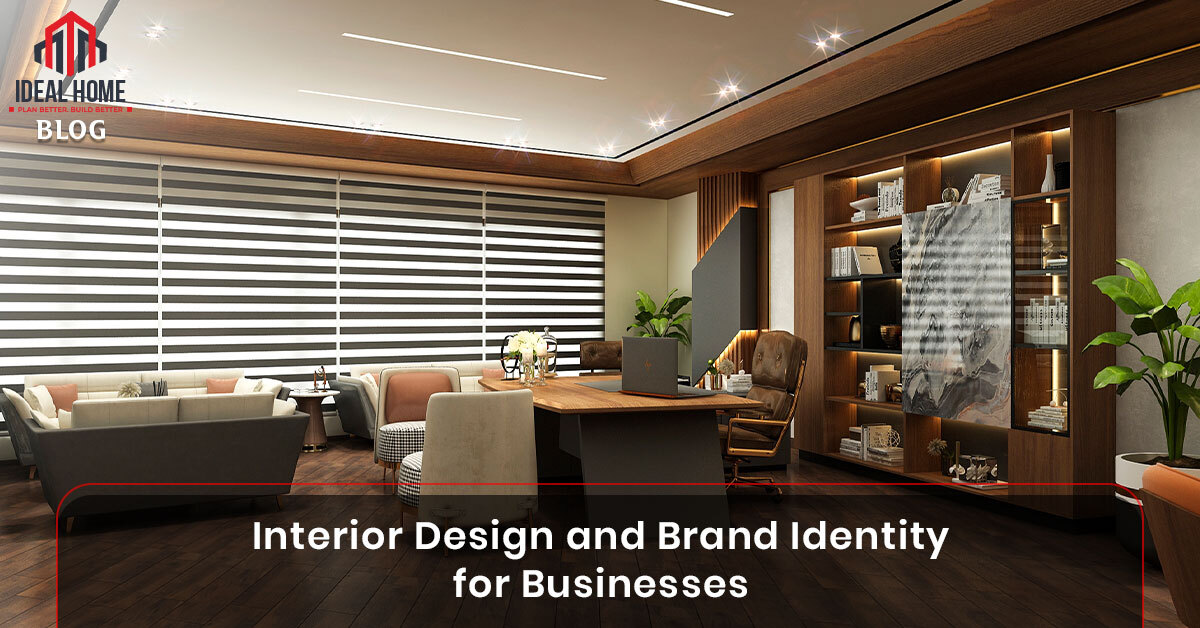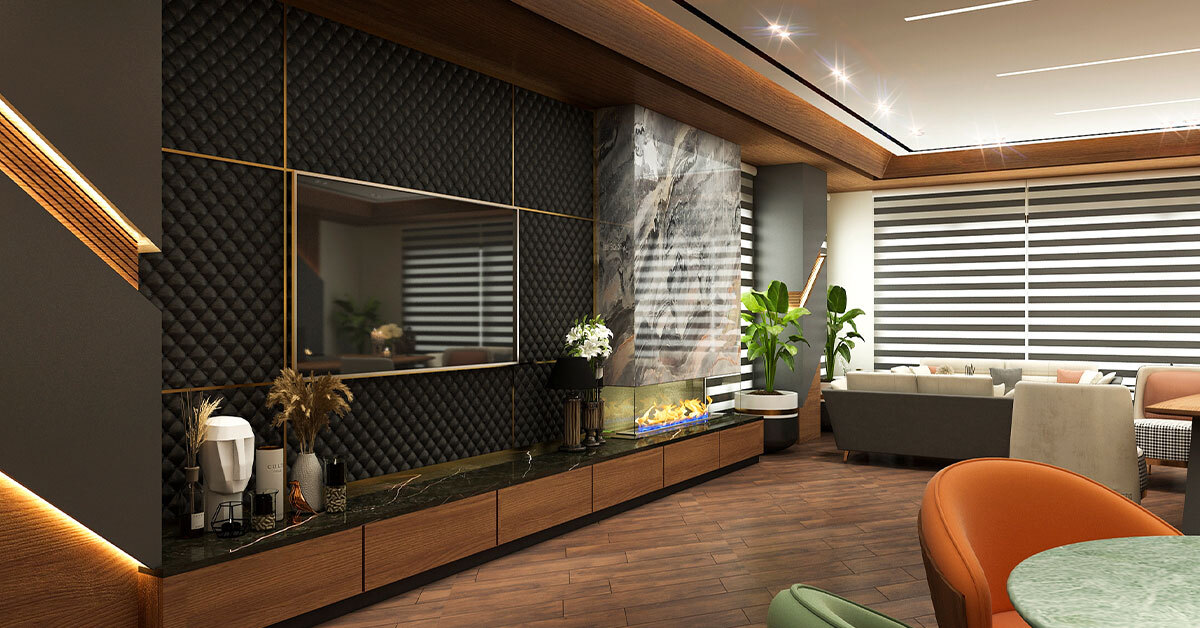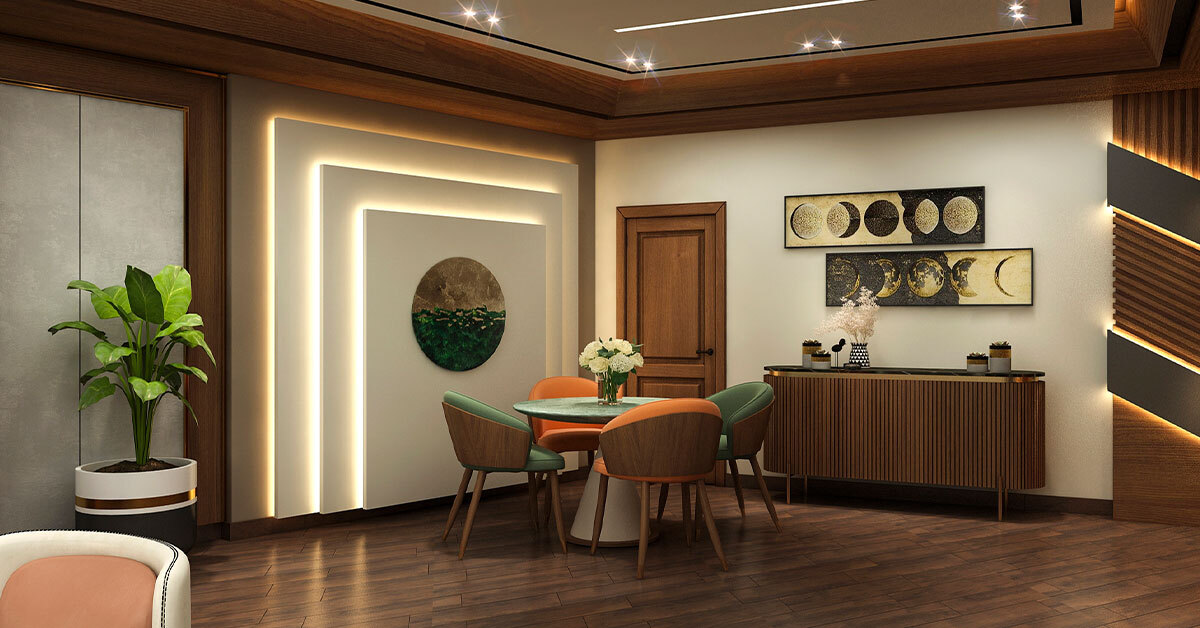
Interior design and brand identity go hand in hand. A company’s space speaks before words are exchanged. When a client walks into an office, shop, or showroom, the design tells a story. It shows what the business values, how it works, and what kind of trust it can offer.
The problem is that many companies overlook this powerful link. They spend money on marketing, logos, and websites but forget the physical space. Clients step inside and see dull walls, poor lighting, or mismatched furniture. This creates a gap between brand promise and real experience. The short answer is clear. A strong design creates a strong identity. It makes clients believe in the brand before any service is delivered.
This blog will show how interiors shape perception, influence culture, and connect design with brand power. Stay with us and learn how Ideal Home uses design to build lasting brand identity for businesses in Pakistan.
Brand identity is not just a logo or a color scheme. It is the way people see and feel a brand. Every detail, from the tone of voice to the space where services are offered, builds that identity.
Interior design and brand identity connect when a company uses its physical space to reflect its values. A law firm may need a formal design with classic finishes. A creative agency may need bold colors, open layouts, and playful decor. The design sends signals to clients and staff about the brand’s character.
Think of it as a handshake. The space introduces the brand before people do. If the design is strong and consistent, the brand feels real, clear, and trustworthy.

A client forms an opinion in seconds. The moment they step inside a workplace, they feel something. That feeling becomes the brand’s first impression.
If the design feels weak or outdated, clients doubt the brand. They may see it as careless or low quality. On the other hand, a sharp design shows confidence. It makes the brand appear organized, reliable, and modern.
First impressions cannot be repeated. That is why companies must treat design as a tool to build brand identity.
Different design elements work together to express brand character. When aligned, they create a clear and powerful identity.
Colors are one of the first things people notice. A brand’s color palette should appear in walls, furniture, and finishes. For example, banks often use blue to show trust and security. Creative firms may use bright colors to signal energy and bold thinking. Materials also matter. Wood feels warm and natural, glass feels modern and open, while steel suggests strength. Choosing the right mix helps a business show its values through design.
The layout shows how a company works. Open spaces with shared desks give a sense of collaboration and freedom. They suit startups and creative industries. On the other hand, structured layouts with private offices suggest formality, discipline, and authority. This fits law firms or corporate offices. The way space is divided tells clients if a brand values teamwork, privacy, or control.
Furniture reflects the quality of a brand. Cheap or broken furniture sends the wrong message. Well-chosen chairs, tables, and storage show care and professionalism. Lighting is equally important. Bright lights create focus, while warm lights give comfort. Decor ties it all together. Graphics, wall art, and signs reinforce brand story. Technology also adds a modern touch. Screens, digital boards, and automation make a brand look forward-thinking.
Together, these elements ensure that interior design and brand identity are always connected.
A brand is not just for clients. It also lives in the daily culture of employees. Staff spend hours inside these spaces. If they feel connected, they promote the brand better.
Bright, open offices encourage teamwork and energy. Staff feel free to share ideas. On the other hand, private corners help them focus when needed. This balance improves productivity and motivation.
A strong design also builds pride. Employees feel proud to bring friends or clients to a well-designed office. That pride becomes part of the brand identity. When staff live the brand, clients see the result.
In Pakistan, design is becoming a strong part of branding. Modern clients notice interiors more than before. Businesses in Islamabad, Rawalpindi, Lahore, and Karachi invest in spaces that look sharp and reflect culture.
Local trends show a mix of global and cultural styles. Offices include Pakistani art, local colors, and traditional textures. This adds a unique identity to modern layouts.
Interior design and brand identity in Pakistan go beyond looks. They show respect for culture, community, and modern growth. Businesses that invest in brand-based design win trust faster.

At Ideal Home, we understand that design is brand language. For over 45 years, we have shaped interiors that reflect business values. Our projects cover embassies, banks, healthcare centers, and corporate offices. Each design tells the story of the brand.
With Ideal Home, you do not just get interiors. You get spaces that live your brand identity every day.
A strong brand starts with a strong space. Every client who walks in sees your values. Every employee who works there feels your culture. A smart design creates a lasting impact that no advertisement can replace.
Ideal Home is ready to help you build that impact. We listen to your vision and design spaces that reflect it. We make sure your brand speaks clearly through every wall, layout, and detail.
Contact us today. Together, we will create interiors that build your brand identity and set your business apart in the market.
Interior design matters because it creates the first impression. When clients enter, the space shows values and trust.
Colors, layouts, lighting, and furniture reflect values. A luxury brand may use rich finishes, while startups use bold, open spaces.
Yes. Even small spaces can reflect brand identity. Smart use of color, light, and decor makes a lasting impact.
A good design motivates staff and builds pride. Open layouts support teamwork, while private areas improve focus.
Technology shows a modern and efficient brand. Smart screens, digital displays, and automation make spaces look innovative.
Yes. Interior design and brand identity work together. A space that matches the brand story builds trust and loyalty.
Clients in Pakistan notice interiors more today. Offices that reflect identity stand out in markets and gain trust faster.
IDEAL HOME | All Rights Reserved | Powered By The Velocity Digital Marketing